Pride month: The best LGBTQ+ shows, from Heartstopper to Sex Education
June means Pride and these are the best queer shows to binge, according to Inga Parkel. Including Feel Good, Hacks, Shrill, and more

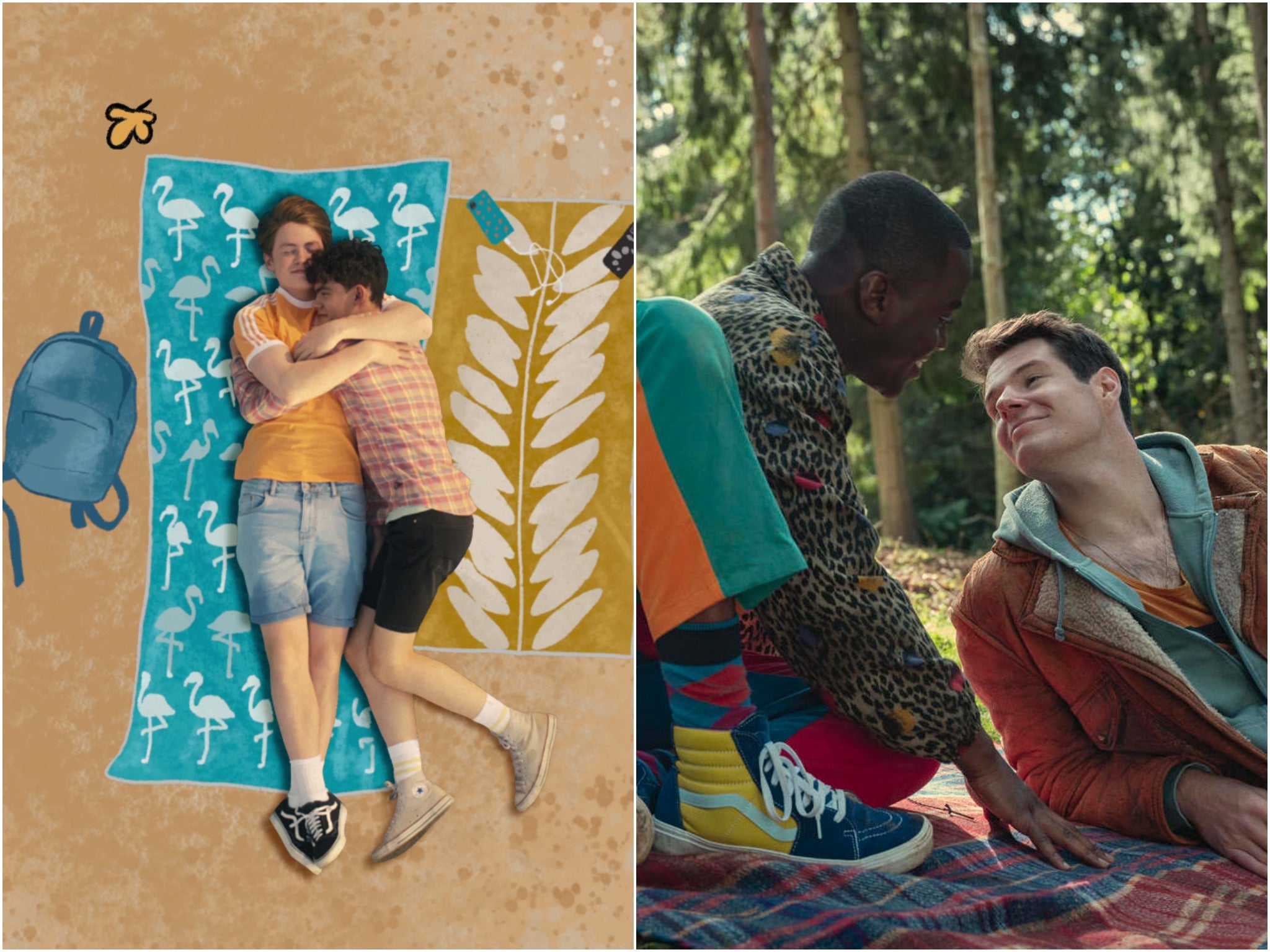
Your support helps us to tell the story
From reproductive rights to climate change to Big Tech, The Independent is on the ground when the story is developing. Whether it's investigating the financials of Elon Musk's pro-Trump PAC or producing our latest documentary, 'The A Word', which shines a light on the American women fighting for reproductive rights, we know how important it is to parse out the facts from the messaging.
At such a critical moment in US history, we need reporters on the ground. Your donation allows us to keep sending journalists to speak to both sides of the story.
The Independent is trusted by Americans across the entire political spectrum. And unlike many other quality news outlets, we choose not to lock Americans out of our reporting and analysis with paywalls. We believe quality journalism should be available to everyone, paid for by those who can afford it.
Your support makes all the difference.Queer representation on TV has grown exponentially over recent years. From Dickinson to Hacks, LGBTQ+ characters are no longer a token gesture, but a true celebration. And while greater representation on screen doesn’t discount the community’s struggles, it’s very much worth celebrating the progress made.
Of course, June isn’t the only month to watch these amazing shows, so here’s an extensive list that will last you far beyond the month.
Heartstopper (Netflix, one season, 2022–)
Heartstopper is a warm and fuzzy depiction of a new friendship between an unlikely pair, popular rugby player Nick (Kit Connor) and quiet boy Charlie (Joe Locke). It’s a refreshing take on the trope of gay trauma, as Charlie is already out of the closet but patiently waiting while the boys he likes find their way out too.
The Haunting of Bly Manor (Netflix, one season, 2020)
Although set against the backdrop of a ghost story, at its core, The Haunting of Bly Manor is an endearing love story. Running away from her fraught past, an American (You’s Victoria Pedretti) takes a job in the UK as a nanny to two orphaned children. After she begins seeing apparitions roaming the estate, she’s forced to confront her own ghosts with the help of a potential new lover (Amelia Eve).
Feel Good (Netflix, two seasons, 2020–2021)
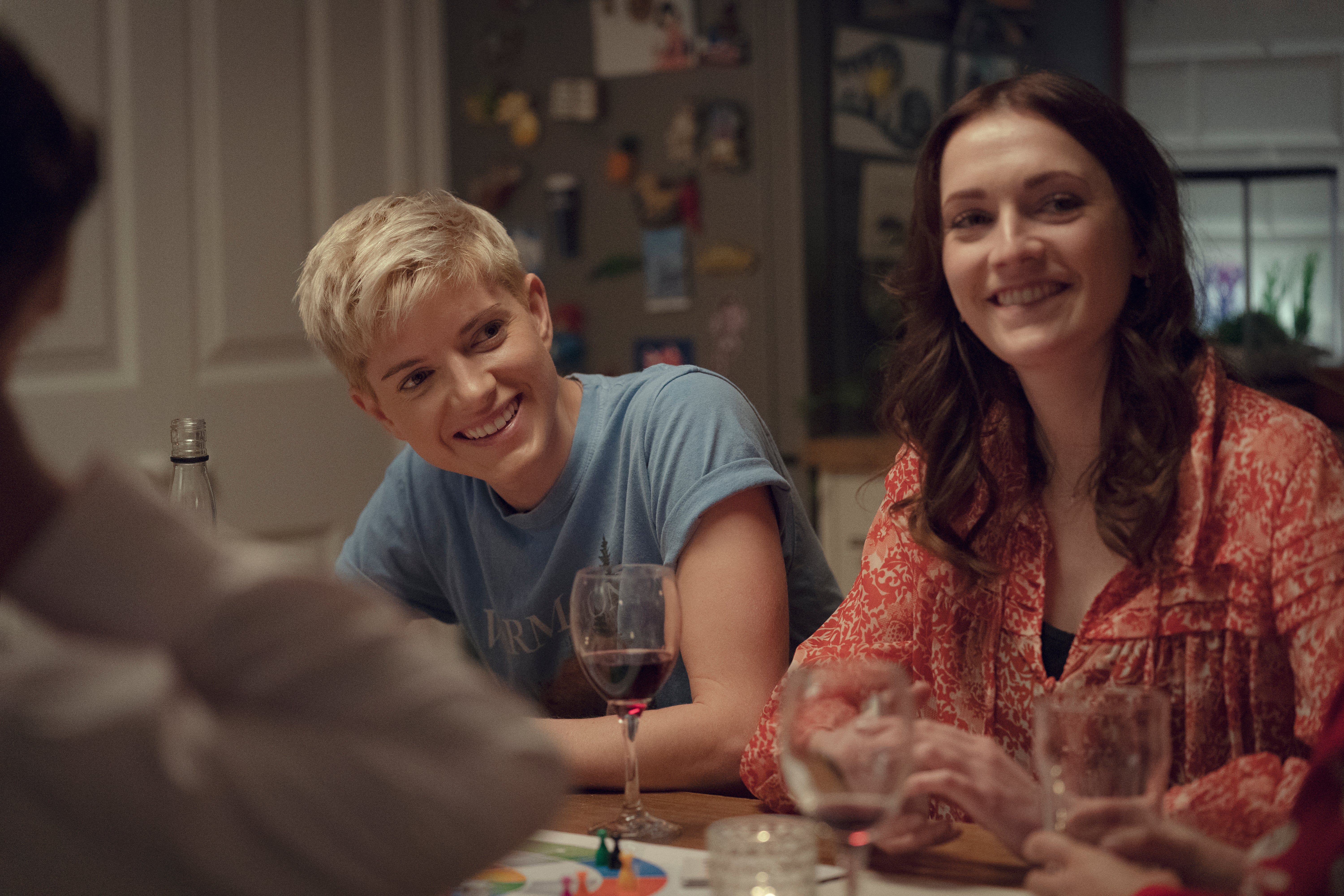
In this semi-autobiographical re-telling of comedian Mae Martin’s life, Feel Good centres around Mae as they grapple with their sobriety and new girlfriend. Albeit founded in humour, the show takes special care to break down the nuances and challenges of navigating gender and sexual identity.
Please Like Me (Hulu US, Amazon Prime UK, four seasons, 2013–2016)
Please Like Me is an Australian coming-of-age story about twentysomething Josh (Josh Thomas), who’s just had his big gay awakening. With this new revelation, he’s trying to figure out how to proceed amid other significant life changes, including a recent move home to take care of his suicidal mother.
Hacks (HBO Max US, Amazon Prime UK, two seasons, 2021–)
Emmy-winning Hacks boasts a cast whose identities uniquely reflect their characters. Cleverly written, it follows a fading stand-up comedian (Jean Smart) who’s paired with a cancelled comedy writer (Hannah Einbinder) in an attempt to revitalise both of their careers. Despite the stark contrast in age and the generations that shaped them, they eventually find a human connection that brings them closer together.
The Fosters (Hulu US, Disney+ UK, five seasons, 2013–2018)
It’s rare for an older lesbian couple to be portrayed on TV, but The Fosters did so triumphantly for five years. Beautifully sharing the message that blood isn’t essential in making a family, it features two mothers, Stef (Teri Polo) and Lena (Sherri Saum) and their blended household of Stef’s biological son, a set of adopted twins, and two foster children.
Love, Victor (Disney+, three seasons, 2020–)
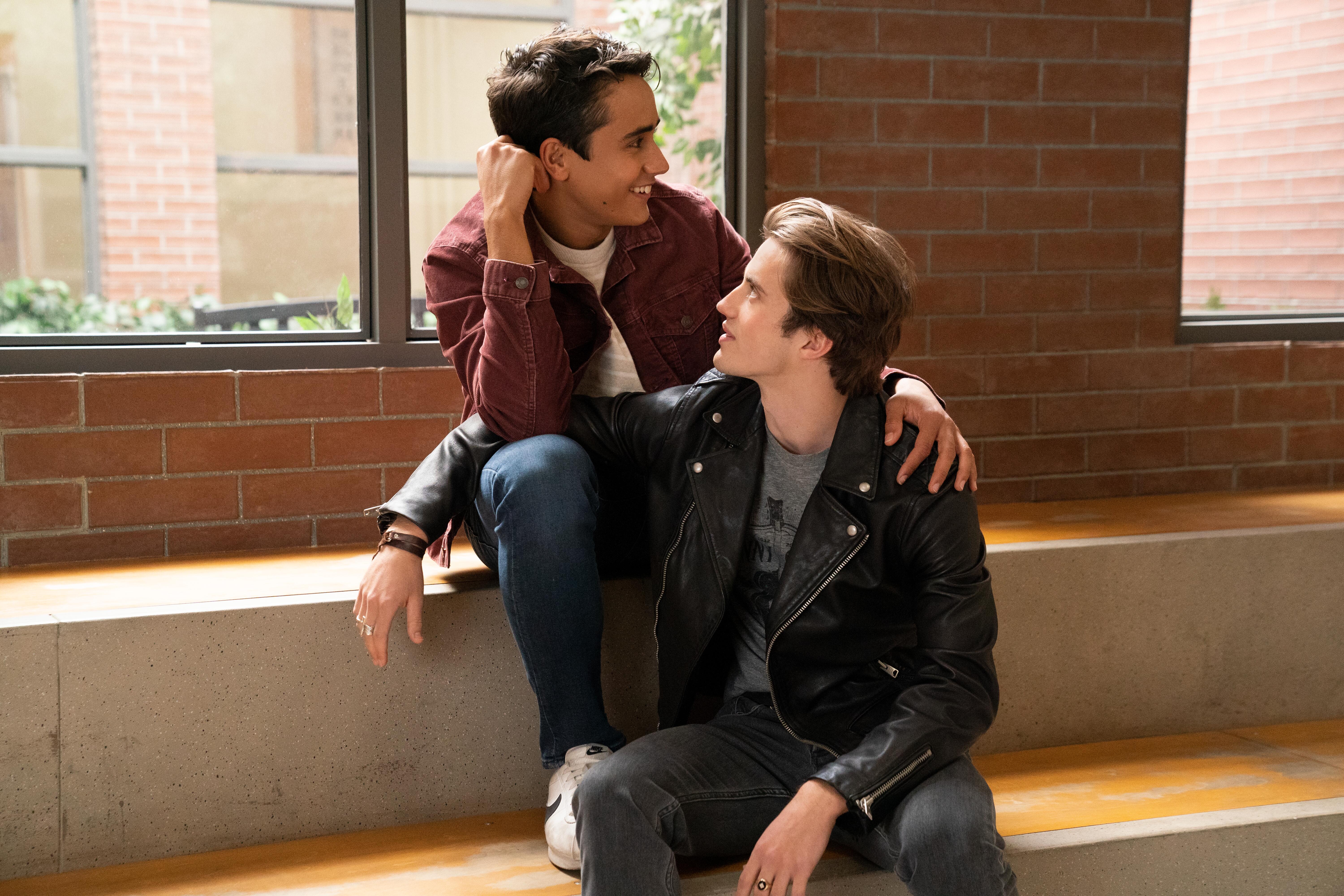
Before Heartstopper there was Love, Victor, a similarly positive take on a high school boy’s (Michael Cimino) path towards acceptance of his sexual orientation. LGBTQ+ stories often focus on the white narrative, yet this show successfully challenges the norm by highlighting specific difficulties of queer acceptance in a family of colour.

Watch Apple TV+ free for 7 days
New subscribers only. £8.99/mo. after free trial. Plan auto-renews until cancelled

Watch Apple TV+ free for 7 days
New subscribers only. £8.99/mo. after free trial. Plan auto-renews until cancelled
Good Trouble (Hulu US, BBC iPlayer UK, four seasons, 2019–)
Good Trouble is an offshoot of The Fosters, continuing the story of sisters Callie (Maia Mitchell) and Marianna (Cierra Ramirez) and their life after college. When they move into an eclectic Los Angeles coterie, they form their own close-knit family full of diverse backgrounds. With multiple queer characters of colour, it strengthens the representation of these crucial narratives on TV.
Dickinson (Apple TV+, three seasons, 2019–2021)
Hailee Steinfeld leads Dickinson as outspoken feminist and titular character Emily Dickinson, striving to become the famed poet so revered today. While it’s no secret the writer was romantically involved with her brother’s wife, the inclusion of this personal side runs deep within the series.
Schitt’s Creek (Netflix, six seasons, 2015–2020)
What started exclusively on Canadian screens soon shot to immense popularity after landing on Netflix. Schitt’s Creek is a laugh-out-loud sitcom about a once-wealthy family forced to adjust to newfound poverty following sudden bankruptcy. Starring Dan Levy, who plays the flamboyant and lovable David Rose, it conveys the importance of living unapologetically.
Shrill (Hulu US, BBC iPlayer UK, three seasons, 2019–2021)
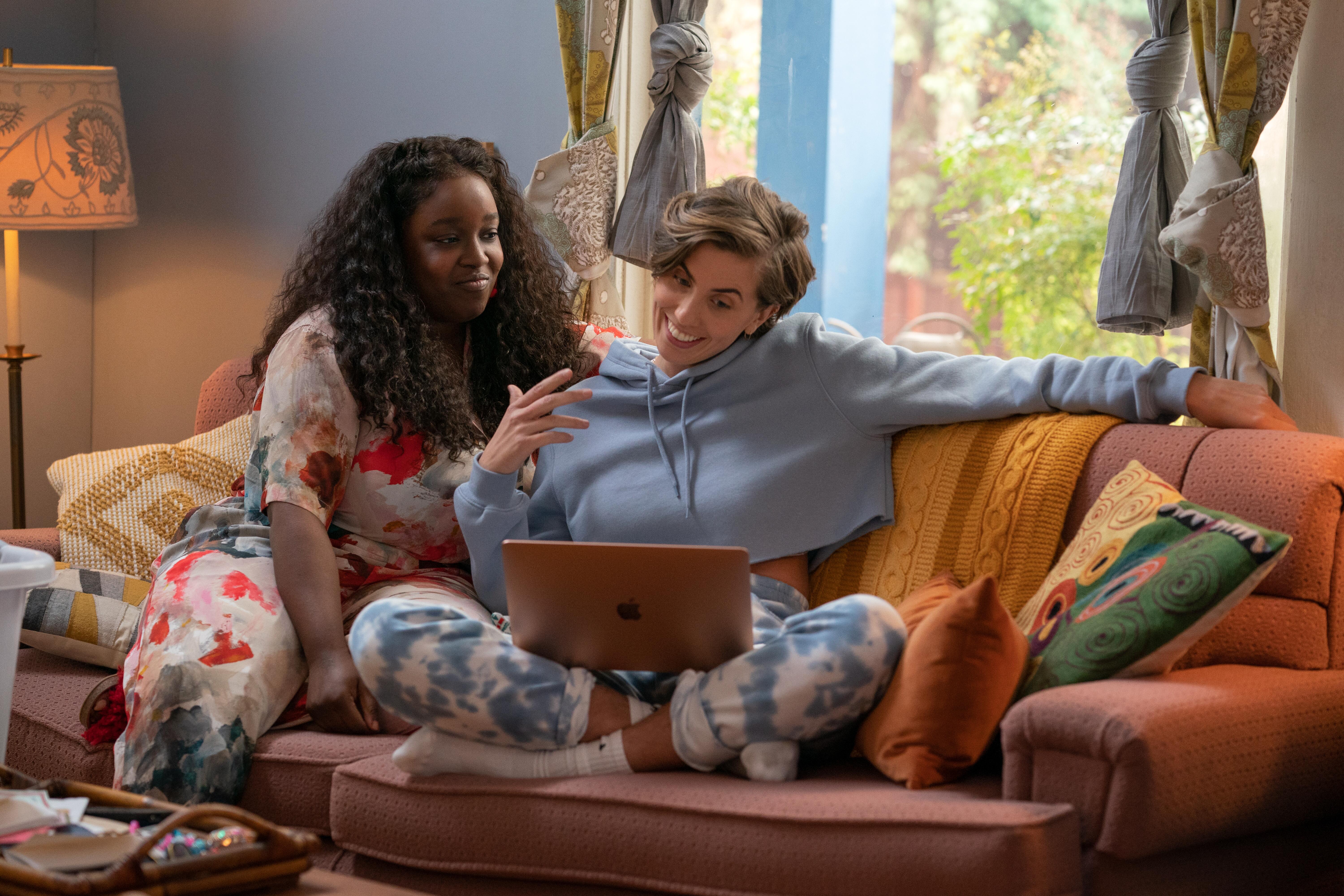
SNL comedian Aidy Bryant leads Shrill as a plus-sized Portland journalist who reframes her body insecurity to propel her waning career. As it features a small cast, there’s substantial room for its secondary characters to be fully developed, including Fran (Lolly Adefope), a Black lesbian who defies any sense of tokenism many shows have fallen prey to.
Grey’s Anatomy (Hulu US, Amazon Prime UK, 18 seasons, 2005–)
Over nearly two decades, Grey’s Anatomy – the hit medical drama – has managed to make its way into the hearts of the LGBTQ+ community. Beginning with its first breakout couple Arizona (Jessica Capshaw) and Callie (Sara Ramirez), it has kept a steady stream of queer plotlines throughout, even introducing its first non-binary character (played by Shrill’s ER Fightmaster) in the latest series.
The Bold Type (Hulu US, Netflix UK, five seasons, 2017–2021)
Based in the world of journalism, The Bold Type is a feminist show about three young staffers who work for a women’s magazine. They learn to lean on each other as they traverse obstacles of young adulthood, question heteronormativity, and fight against the patriarchy.
Sex Education (Netflix, three seasons, 2019–)
Sex Education doesn’t shy away from “the talk” – instead, it addresses it with full force. Otis (Asa Butterfield) becomes his classmates’ unofficial sex educator, advising them on intimate unknowns. But what really makes it monumental, is its inclusion of gay sex education.
The Wilds (Amazon Prime, two seasons, 2020–)
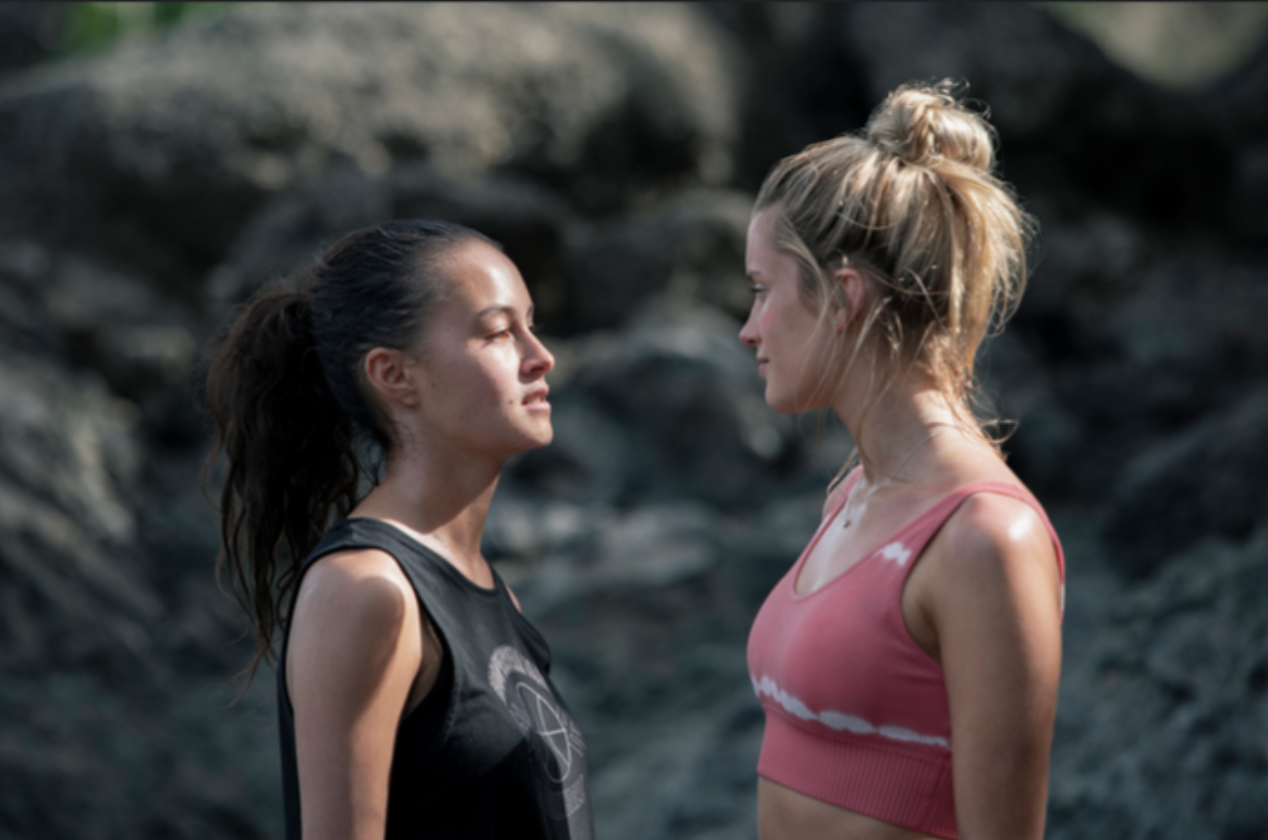
The Wilds is about a group of girls stranded on a remote island, unaware that they’re part of an elaborate social experiment. In an effort to survive, they must figure out a way to escape before the elements overtake them. However, in spite of their potential demise, there’s still room for budding lesbian romance.
The Sex Lives of College Girls (HBO Max US, ITV Hub UK, one season, 2021–)
Co-created by Mindy Kaling, The Sex Lives of College Girls is an empowering yet light-hearted look at four new college roommates and their sexual escapades. By normalising women’s sexuality, it shares the important message that they can engage in promiscuity too.
The Morning Show (Apple TV+, two seasons, 2019–)
The Morning Show is a workplace drama set amid the #MeToo movement that seeks to pull back the curtain on the problematic inner workings of a news production company. Though its second season gay storyline might seem abrupt to some viewers, it takes a critical look at the backlash many public figures face when coming out.
For All Mankind (Apple TV+, three seasons, 2019–)
Imagine an alternate reality where the Soviet Union won the space race, and you have the premise of For All Mankind. It rewrites the past by seamlessly integrating women into historical milestones, without disregarding their struggles. Additionally, it delicately handles the government’s discrimination toward gay and lesbian people during the late 1960s.
And Just Like That (HBO Max US, NOW UK, one season, 2021–)
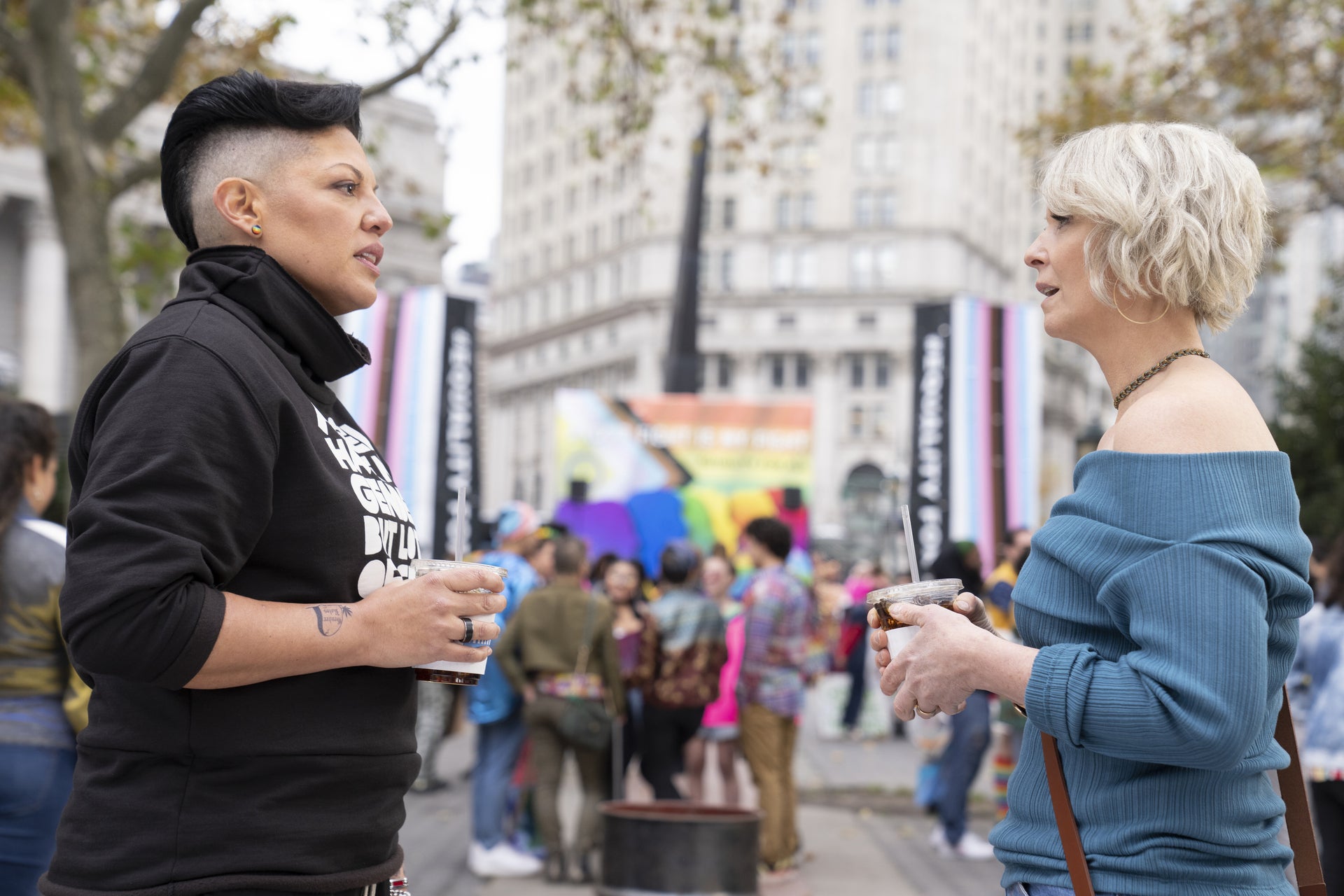
Eleven years after its famed predecessor, And Just Like That is the TV spinoff of Sex and the City’s leading ladies, minus Samantha (Kim Cattrall). In an attempt to make up for the original’s lack of diversity, its inclusion can sometimes feel forced. Nonetheless, Miranda’s (Cynthia Nixon) later-in-life coming-out isn’t a storyline typically portrayed, making it that much more powerful.
Euphoria (HBO Max US, NOW UK, two seasons, 2019–)
A massive success, Euphoria is a gritty fictionalisation of high school students grappling with substance abuse and sex. The series put Hunter Schafer on the map for trans actors with her portrayal of Jules, expanding the limited trans roles on screen.
Glee (Disney+, six seasons, 2009–2015)
Despite its imperfections in diverse storytelling, Glee still broke barriers for its generation. The cult classic, about a high school choir group, reached millions of young viewers and provided a necessary platform for the gay community. At the time, it was among the few shows that had queer characters at the forefront of its cast.
A Million Little Things (Hulu US, four seasons, 2018–)
A Million Little Things is a tearful drama about a friend group whose bond is strengthened after one of them dies by suicide. The tragedy forces them to question their own existence and cherish the small moments. Subtly weaving in LGBTQ+ identities throughout different generations, it’s relevant to audiences of all ages.
Atypical (Netflix, four seasons, 2017–2021)
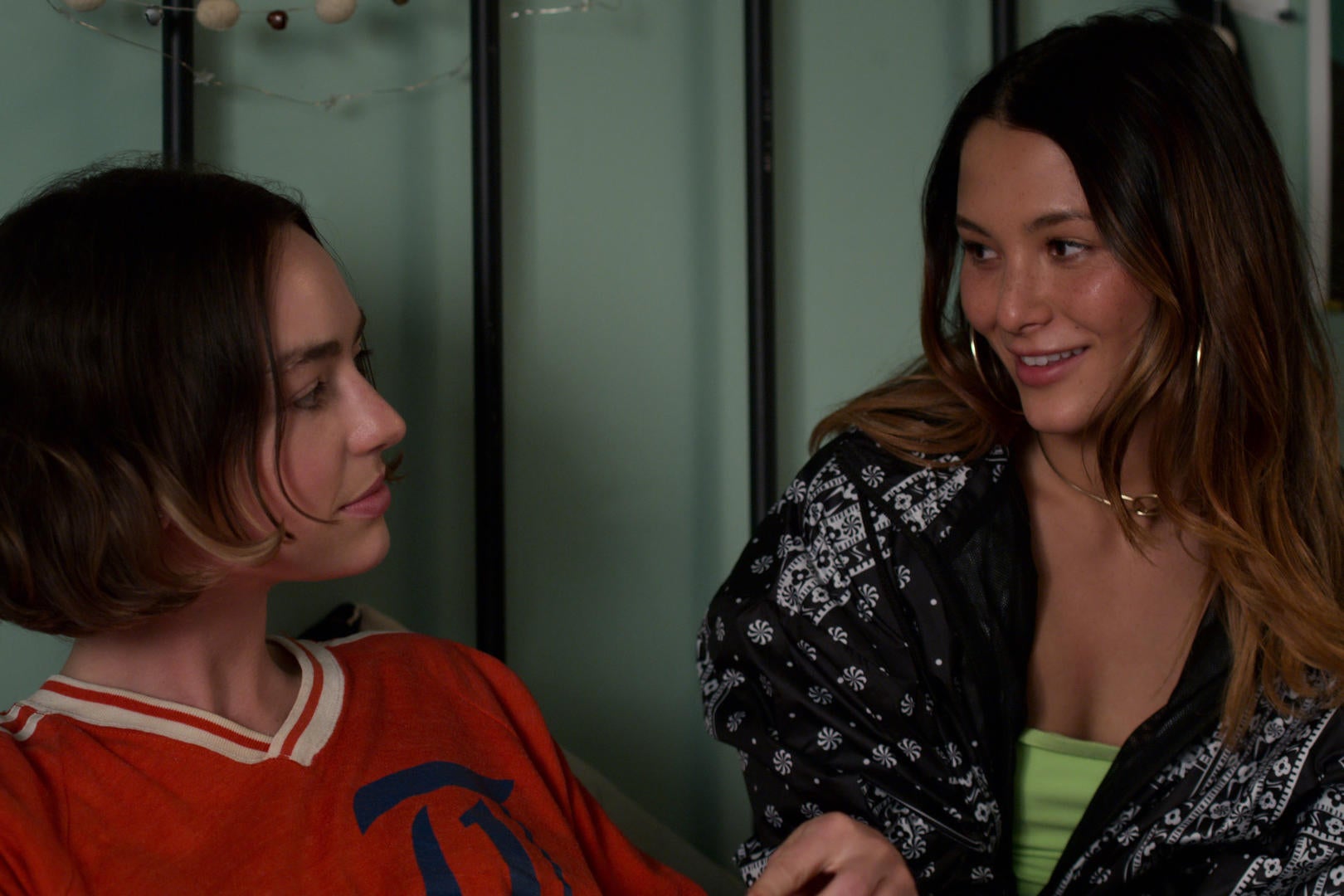
Atypical is a sweet family comedy about a teenage boy (Keir Gilchrist) with autism who is ready for love and independence. And though its introduction of a lesbian storyline is slow, it’s an honest portrayal of the confusion that nearly every queer person can relate to.
The Independent is the official publishing partner of Pride in London 2022

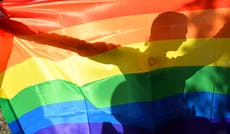

Join our commenting forum
Join thought-provoking conversations, follow other Independent readers and see their replies
Comments